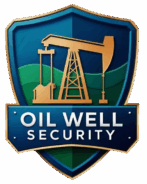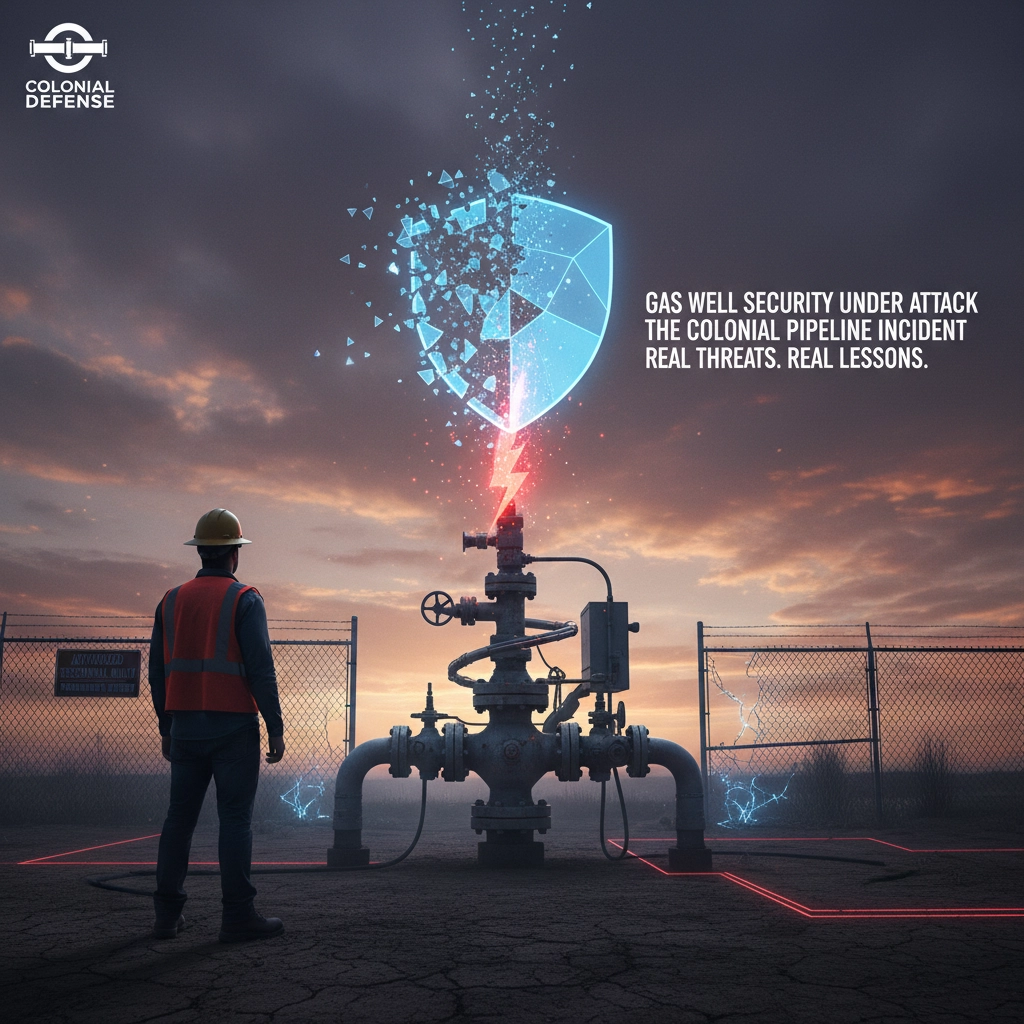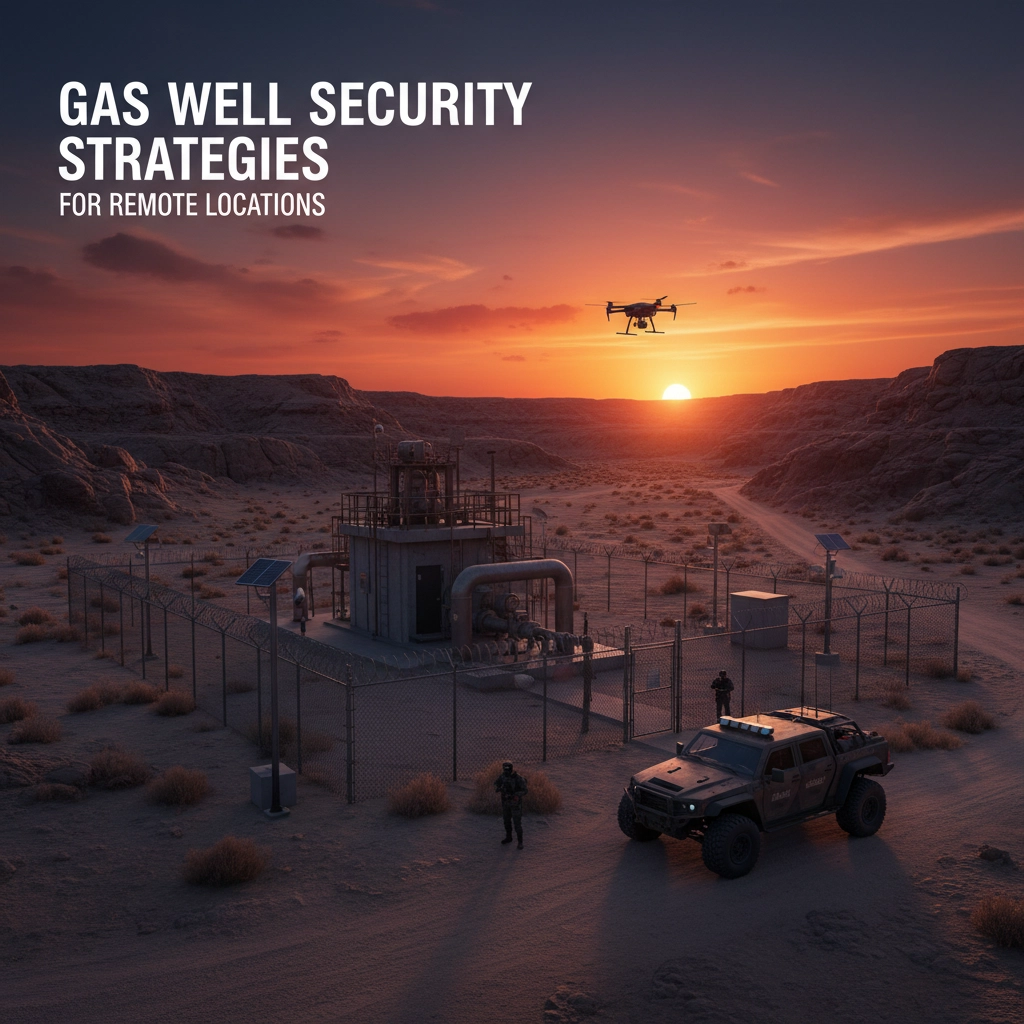Most security professionals thought pipeline attacks were theoretical threats… until May 2021 changed everything.
The Colonial Pipeline ransomware attack didn't just disrupt fuel supplies across the southeastern United States: it shattered the illusion that critical energy infrastructure was immune to sophisticated cyberattacks. In five devastating days, a single compromised password brought America's largest fuel pipeline to its knees, causing panic buying, fuel shortages, and a $4.4 million ransom payment that made headlines worldwide.
For those of us in the gas well security industry, this incident served as a brutal wake-up call. The attack exposed vulnerabilities that many operators had been ignoring for years, and revealed just how unprepared the energy sector was for modern cyber threats.
The Attack That Changed Everything
On May 7, 2021, the DarkSide hacker group deployed ransomware that encrypted Colonial Pipeline's billing systems. While the operational technology controlling the actual pipeline remained untouched, company executives made the critical decision to shut down the entire 5,500-mile system as a precautionary measure.
The breach began with something devastatingly simple: a compromised VPN password that lacked multifactor authentication. This single point of failure allowed attackers to steal 100 gigabytes of sensitive data before deploying their ransomware payload.
Within hours, the consequences rippled across the nation. Gas stations from Alabama to Virginia began running dry. By May 11, 71% of Charlotte's filling stations were out of fuel. In Washington D.C., 87% of stations had run empty by May 14. Fuel prices spiked to their highest levels since 2014, exceeding $3 per gallon in many markets.
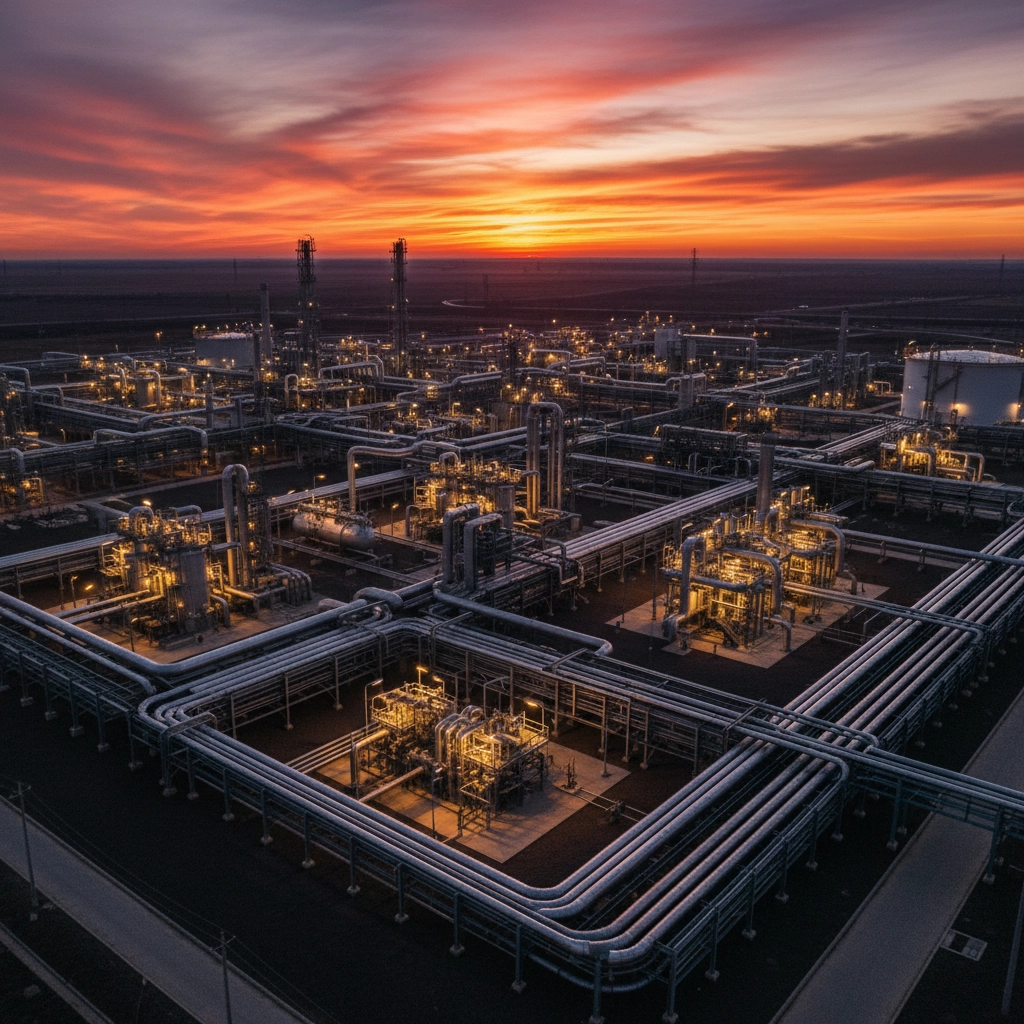
The Security Gaps That Nearly Broke America
The Colonial Pipeline incident exposed three critical vulnerabilities that extend far beyond a single company:
Legacy Security Practices
The attack succeeded because of fundamental security failures that should have been addressed years earlier. Password reuse, inadequate access controls, and the absence of multifactor authentication created an environment where sophisticated criminals could exploit basic weaknesses.
Regulatory Blind Spots
Despite multiple threat assessments identifying pipeline vulnerabilities, regulatory oversight had failed to mandate adequate cybersecurity measures. A 2019 intelligence report had already warned that foreign actors possessed the capability to disrupt natural gas pipelines for extended periods, yet comprehensive security upgrades never materialized.
Operational Technology Risks
The incident highlighted the critical vulnerability of industrial control systems that physically manage pipeline operations. These systems, which many operators assumed were protected by their isolation from conventional IT networks, had become prime targets for attackers seeking maximum impact.

What the Industry Learned (The Hard Way)
The aftermath of the Colonial Pipeline attack triggered a fundamental shift in how we approach gas well security strategies for remote locations. The incident taught us several harsh lessons:
Cyber Threats Are Physical Threats
Brandon Wales, executive director of the Cybersecurity and Infrastructure Security Agency, called the attack "a galvanizing event" that proved cybersecurity threats "could have real implications for our way of life." The attack elevated cybersecurity from a technical IT concern to a boardroom and national security priority.
Basic Security Measures Save Lives
The simplest security protocols: multifactor authentication, regular password updates, and network segmentation: could have prevented this entire crisis. Sometimes the most sophisticated defenses fail because the fundamentals are ignored.
Recovery Is More Complex Than Prevention
Colonial Pipeline's five-day shutdown demonstrated that even successful incident response can have massive consequences. The company faced a choice between risking further attacks and guaranteeing immediate disruption. They chose disruption, and millions of Americans felt the impact.
Criminal Groups Target Critical Infrastructure
The DarkSide group specifically targeted Colonial Pipeline because they understood the leverage that attacking critical infrastructure would provide. This wasn't random: it was strategic, calculated, and effective.
The New Threat Landscape
Since the Colonial Pipeline attack, the threat environment has only intensified. Advanced persistent threat actors have developed custom malware designed specifically to sabotage critical infrastructure facilities. Criminal ransomware gangs have refined their techniques, using double extortion methods to maximize pressure on victims.
Energy infrastructure faces threats from multiple vectors:
- Nation-state actors seeking strategic advantage
- Criminal organizations pursuing financial gain
- Insider threats from compromised employees
- Supply chain vulnerabilities in connected systems
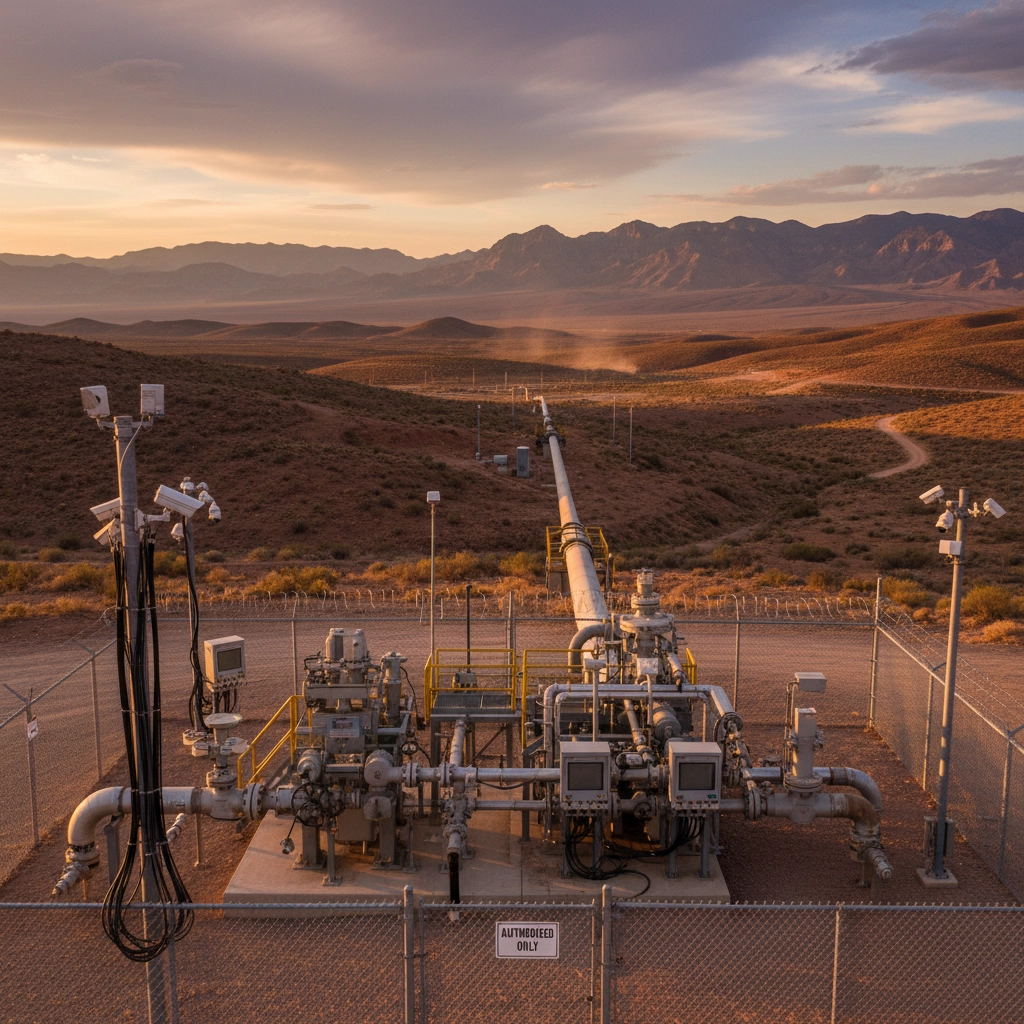
How Modern Security Solutions Address These Threats
At Oil Well Security, we've spent years developing comprehensive protection strategies that address the vulnerabilities exposed by the Colonial Pipeline incident. Our approach combines multiple layers of defense:
Advanced Access Control Systems
We implement integrated access control systems that go far beyond simple passwords. Multifactor authentication, biometric verification, and role-based access ensure that only authorized personnel can access critical systems.
Autonomous Surveillance Technology
Our drone surveillance systems provide continuous monitoring of remote facilities, detecting both physical and cyber threats before they can impact operations. Real-time intelligence allows for immediate response to suspicious activities.
Veteran-Led Security Teams
Our veteran-led security teams bring military-grade discipline and expertise to civilian infrastructure protection. These professionals understand the strategic thinking behind sophisticated attacks and know how to counter them effectively.
Building Resilient Infrastructure for Tomorrow
The Colonial Pipeline attack proved that reactive security measures aren't enough. Modern gas well operations need proactive, comprehensive protection that anticipates threats before they materialize.
Our enhanced protection solutions address the key lessons from the Colonial Pipeline incident:
Network Segmentation: Critical operational systems remain isolated from administrative networks, preventing attacks from spreading between systems.
Continuous Monitoring: 24/7 surveillance detects anomalies in both physical and digital environments, enabling rapid response to potential threats.
Incident Response Planning: Comprehensive emergency procedures minimize disruption during security events, ensuring operations can continue even under attack.
Regular Security Audits: Ongoing assessments identify vulnerabilities before attackers can exploit them, maintaining defense effectiveness as threats evolve.

The Bottom Line: Your Security Can't Wait
The Colonial Pipeline attack taught us that infrastructure security isn't just about protecting assets: it's about protecting the American way of life. When critical energy systems fail, the consequences ripple through every aspect of society.
If you're responsible for gas well operations, remote facilities, or energy infrastructure, you can't afford to learn these lessons the hard way. The threats are real, the stakes are high, and the time for action is now.
Don't wait for your own Colonial Pipeline moment. Take action today to protect your operations, your people, and your community.
Ready to secure your energy infrastructure against the threats that took down Colonial Pipeline?
Contact Oil Well Security today for a comprehensive security assessment. Our veteran-led team understands the evolving threat landscape and has the expertise to keep your operations safe and secure.
📧 Email: info@oilwellsecurity.com
📞 Phone: (970) 465-2525
Connect with us on social media for daily security insights and industry updates:
Visit oilwellsecurity.com to learn more about our comprehensive security solutions and schedule your consultation today.
#GasWellSecurity #CyberSecurity #EnergyInfrastructure #CriticalInfrastructure #PipelineSecurity #IndustrialSecurity #Innovation #DigitalMarketing #Strategy
